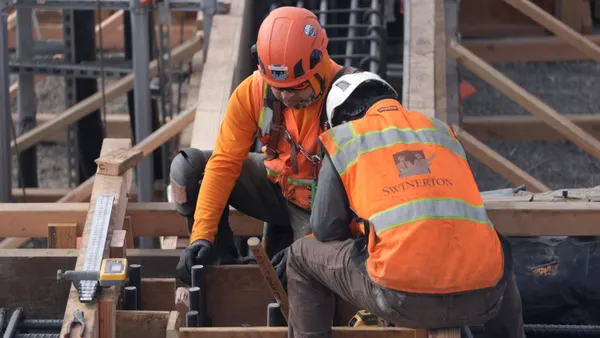Dive Brief:
- A new Utah law helps ex-convicts apply to government jobs without revealing their criminal past until they’re interviewed, according to U.S.News & World Report. The law, part of the ban-the-box movement, keeps state agencies from discriminating against applicants with criminal pasts during the recruiting process. The bill becomes effective May 9.
- The law allows employers to ask applicants about past convictions during some interviews before deciding whether to hire them. If no interview is involved, employers can’t ask about an applicant’s criminal past until a job offer is made.
- These rules won't be applied to government jobs in criminal or juvenile justice; law enforcement; work involving children and vulnerable adults; and employment at both the State Tax Commission and Utah’s Department of Alcohol Beverage Control.
Dive Insight:
Several states (in addition to Washington, D.C.) have adopted ban-the-box measures largely to prevent government employers from bypassing job applicants because of past criminal convictions. Utah is the 25th state to adopt such a law; the list of ban-the-box measures also impacts over 150 cities and counties.
The ban-the-box movement is growing nationwide and has bipartisan support among lawmakers. In a divided political era, anything resembling compromise might encourage private-sector employers to adopt ban-the-box measures. Criminal background checks have a statistically disproportionate effect on African-American and Hispanic candidates.
Even the Trump administration seems to be on board. In late 2016, the EEOC announced its Strategic Enforcement Plan through 2021, with one of the key policy focuses being the protection of job applicants regardless of their ethnicity. Trump's acting EEOC chair, Victoria Lipnic, confirmed that anti-discrimination policies will indeed remain an area of enforcement.
A 2008 survey cited by the National Employment Law Project (NELP) shows that over one in four adults have a criminal record of some sort. This sobering statistic could mean that ban-the-box laws not only help applicants with past convictions get jobs, but also could help close skills gaps that hurt employers.
Employers must keep up with any changes in their jurisdictions to stay compliant with ban-the-box laws. That means updating old applicant tracking systems (ATS) and clarifying existing background check policies. We're sure to see more litigation, given that some large employers have already been sues over perceived racial bias and discrimination stemming primarily from criminal background checks.














